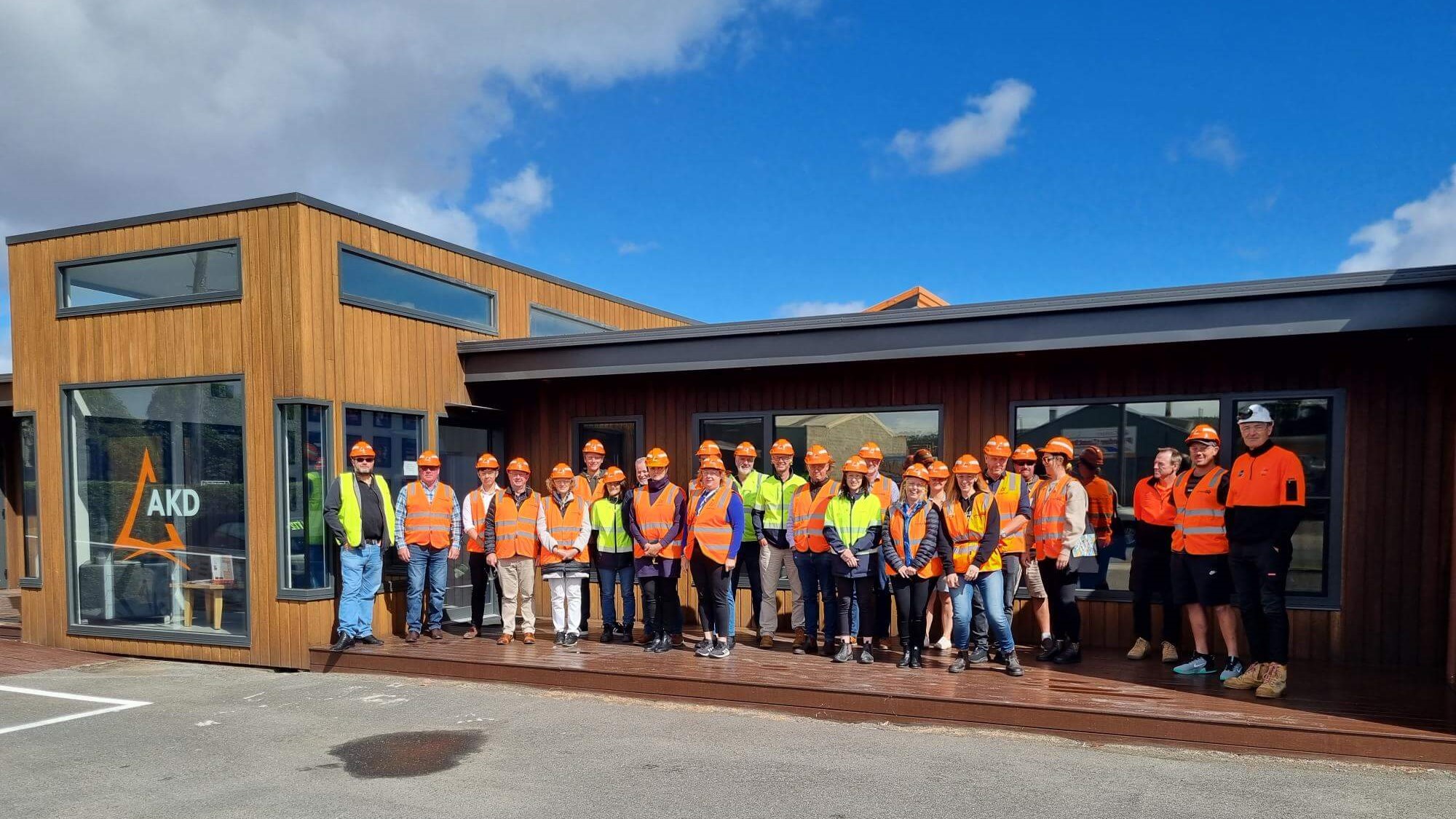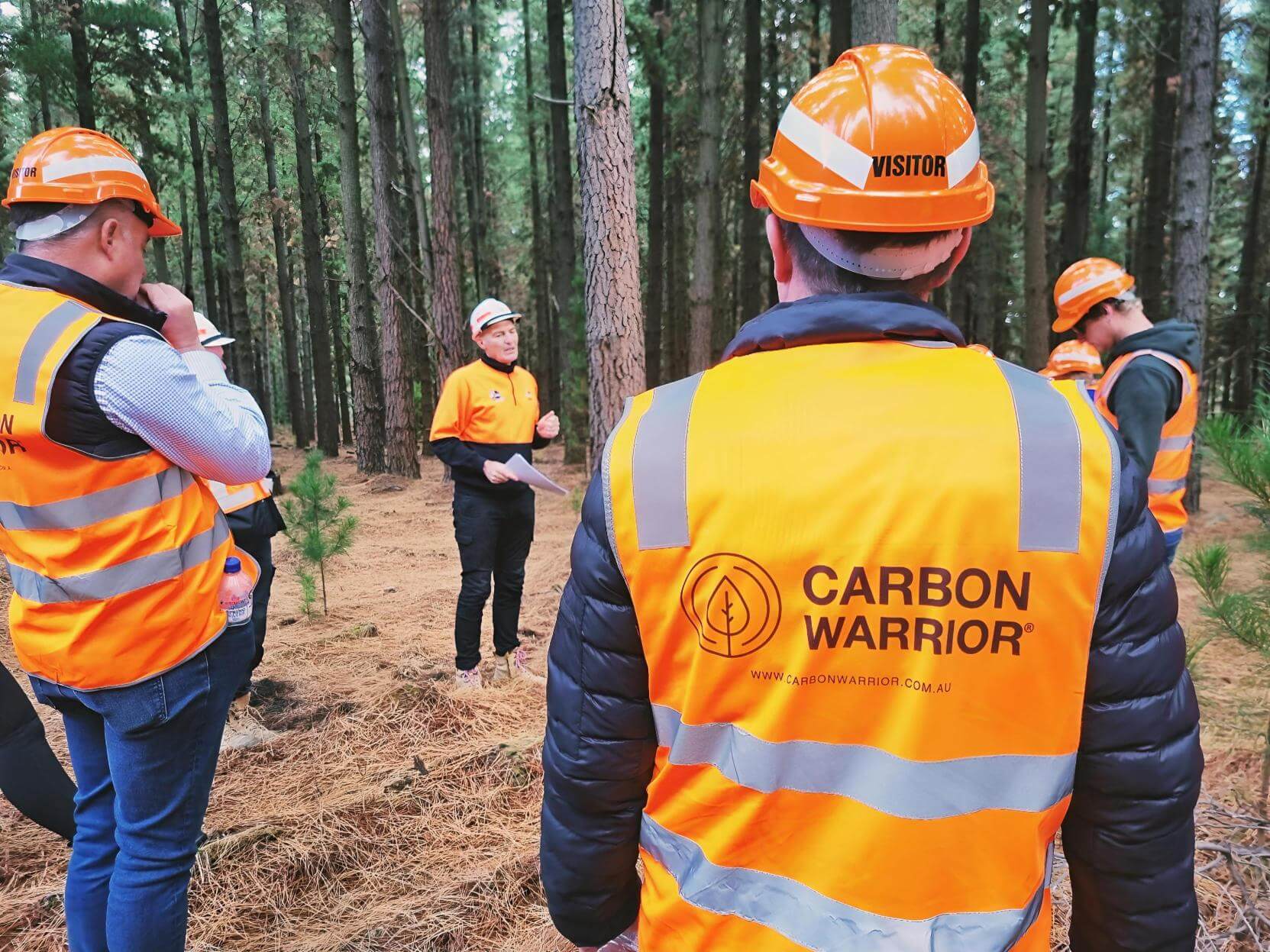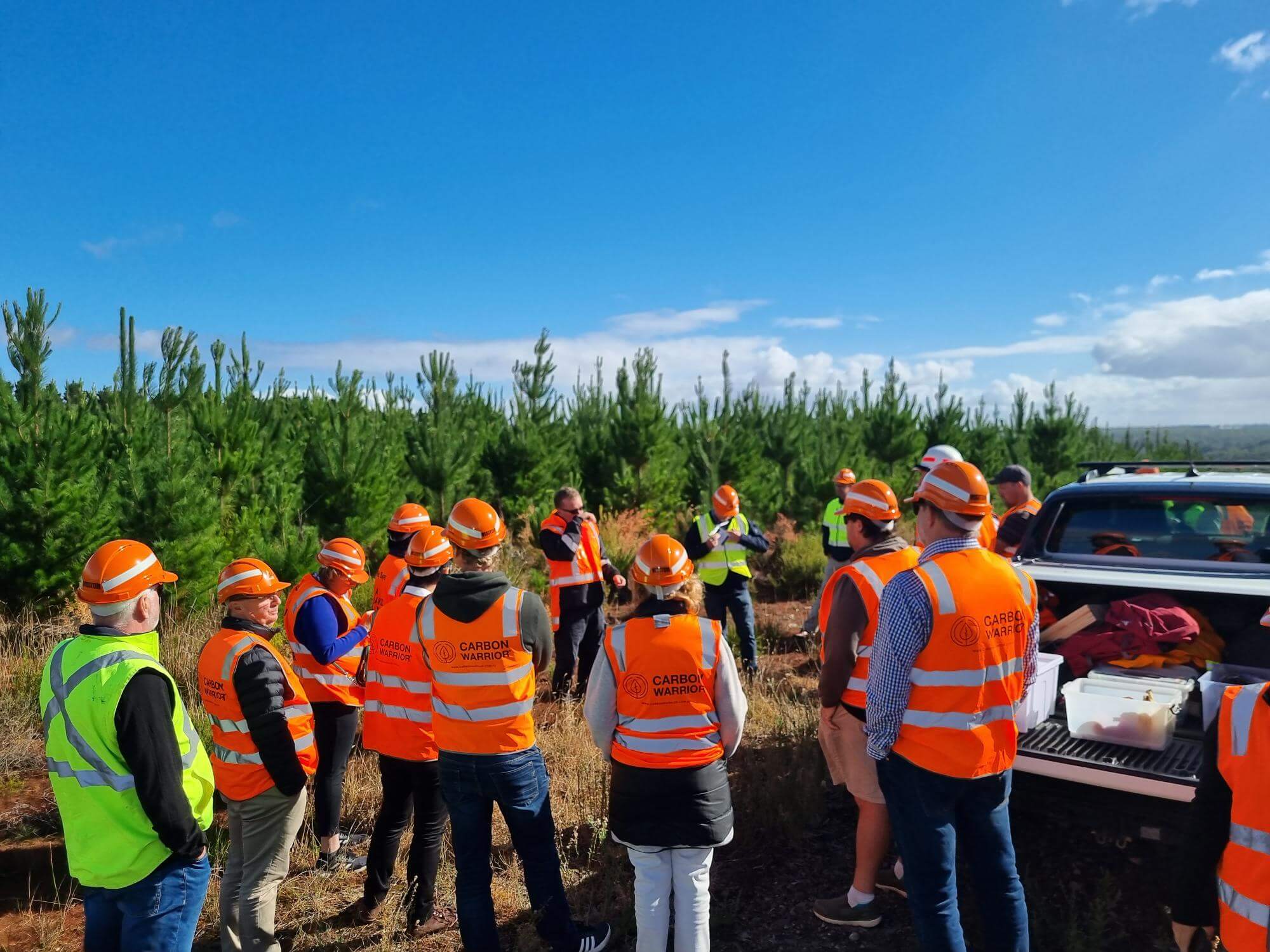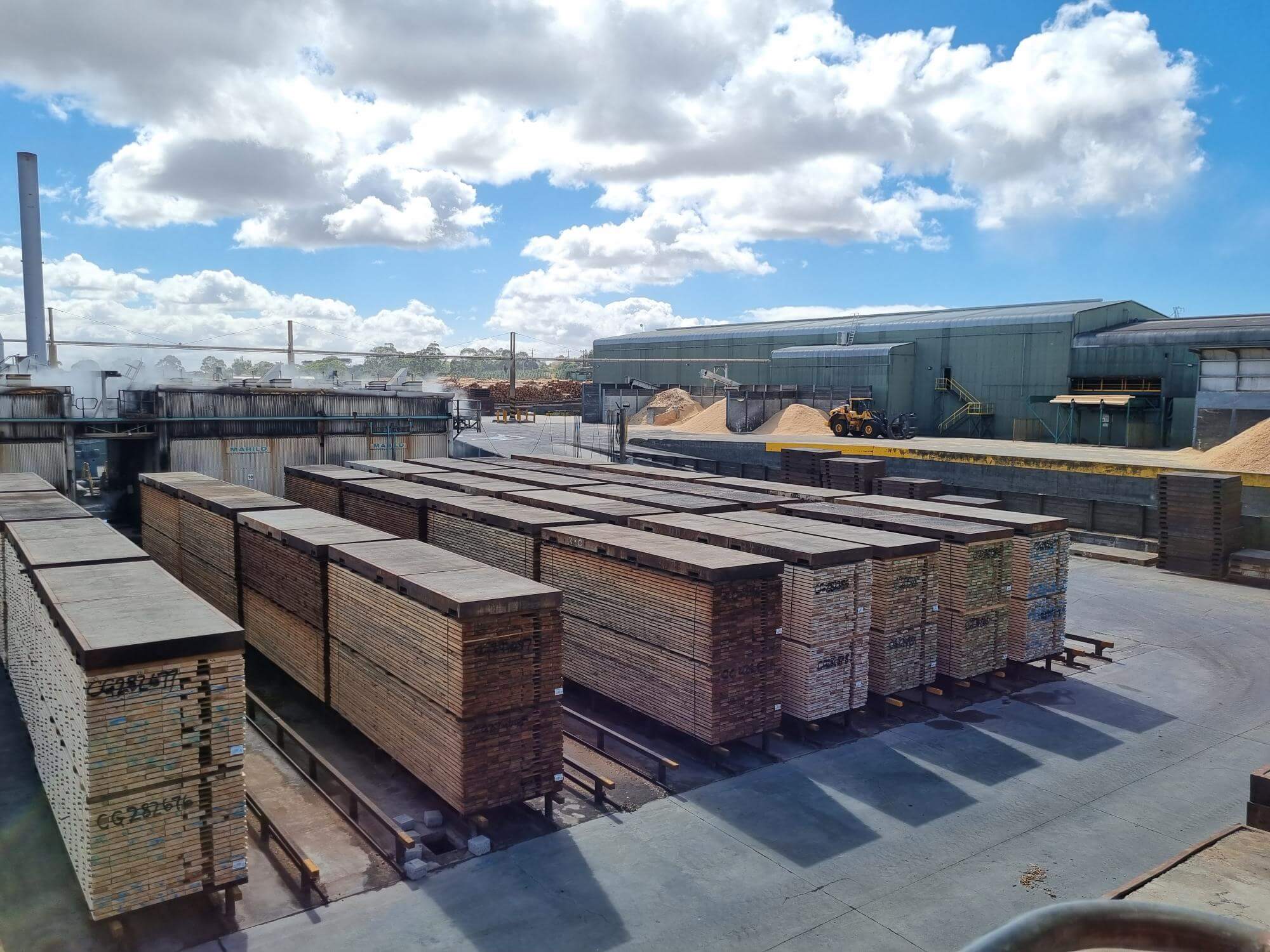This article was written by FTMA’s Kat Welsh
Last week, 18 and 19 March, saw FTMA pull out an incredible biennial National Conference. Two days jampacked full of connection, insight, and inspiration. What followed on Wednesday 20th was the perfect ending to 3 days of experiences to consolidate an important part of the industry – sustainable forestry and sawmilling.
AKD have timber processing operations across Victoria, NSW, and Queensland. They are the largest softwood sawmiller in Australia and have over 12,000 hectares of sustainably grown radiata pine forests, in Victoria, NSW, and South Australia. Founded over 65 years ago, AKD’s headquarters are still at Colac, in Victoria, and was the perfect place to follow up from the Conference days in Geelong.

The tour saw 25 delegates being shown around a nearby plantation site, and the sawmilling process. It’s the side of sustainable forestry and construction, that many don’t often get to see, yet everyone should. What goes into producing crucial softwood for our community, is technical, evaluated, and ingenuitive. The tour highlighted the hard work, and dedication it takes to supply our carbon capturing building material. A balance of demand, supply, and the future of climate driven change.
What goes into growing sustainable forests, plantation management, and producing wood is a vast and skilled process. Being out on site with AKD, made that obvious, and impressive. From hearing about the trees being grown as cuttings / bred for consistent properties, to how the land is managed prior to planting out, to then how the plantations are managed for maximum growth, fire prevention, and prepared for clear-felling, left us all pretty staggered.
While our guides talked us through the intricacies of growing radiata, we were surrounded by gentle breezes, pine needles floating down on us, black cockatoos calling out, and the incredible smell of the forest. It was probably the most peaceful part of the 3 days of Conference!
Submerged in the trees surrounding us – soon to become the future landscape of Australian housing – struck a chord. AKD is part of the bigger picture, not just for construction or associated wood products, but for the planet. It’s something we need more of. More land to be growing trees. More carbon being locked away. More sustainable timber produced within Australia. AKD are unable to meet their own demand exclusively, clear felling approx. 5,000 hectares per year. They would need to own about 150,000 hectares, to maintain that rate.

AKD, are ongoingly increasing their plantations, generally by buying farmland, and aggregating their estate – converting the farmland into the pine forests. It costs a lot of money to keep buying up land, converting it, and managing the regular interventions to procure the very best trees, and keeping them safe. Fire is the biggest threat to the plantations. But, the land also needs constant attention; weeds, pests, soil analysis, water management, tree thinning, as well as re-establishing areas that aren’t suitable for plantation back to native flora. Last year (2023) AKD planted 2.7 million new seedlings. Imagine the carbon those trees will devour. According to AKD, Australian softwood plantations absorb and store more than 5 million tonnes of atmospheric carbon each year.
AKD is made up of private investors, 4 families, whose strategy is to keep growing, keep increasing, keep expanding. They’re passionate about sawmilling, and passionate about growing trees. And, the passion was clear with every staff member involved in showing our group around. When we moved on to the second stage, the milling process, AKD staff again were clearly devoted, and proactive about everything they do.
Whilst in the forest we had a jaw dropping experience of how impacting the plantations are, the milling and drying process in Colac, was just as jaw dropping – abundant with machinery, automation, and ingenuity in action. The science behind milling trees, and producing the very best structural timber, is intricate, calculated, and immense. What we witnessed at the plant was a well-oiled machine – literally and figuratively – to turn a gnarly chunky trunk, into ready-to-go kiln dried timbers.
Every part of the tree is utilised in some capacity. ‘At AKD we are reducing our fossil fuel energy footprint. Most of our energy is generated from our sawdust by-product. We turn this into heat to kiln dry our timber.’
For the future, AKD has plans to progress further into renewable sources of energy to power their sites, and reduce emissions. They are looking towards agreements with windfarms, upgrading to solar, and wood gasification technologies. All in the bid to reduce their carbon footprint.
Behind the scenes of the operation, there was much to learn. Staff safety was paramount everywhere we went, including harnesses and constant safety checks. And cleaning the areas, keeps people in full time employment. The fine dust from the processing can impact the ability of machinery, and the need to keep on top of regularly cleaning everything was massive.
One member on the tour mentioned that they weren’t going to go – they felt they didn’t really need to spend the day going onsite – but once out there realised how important it was to learn how trees go from paddock to plate. Comparing the milling industry 100 years ago, to the operation at AKD now, makes it noticeable how far we’ve come in the science of growing, plantation management, machinery and technologies, top quality products, employee safety and wellbeing, and promoting sustainable wood to save the planet.
If the day couldn’t get any better, the lunch that was provided to us on return to HQ was incredible. A massive thanks to all at AKD that helped arrange the tour, and for giving us a terrific insight into the Carbon Warrior process at AKD.
For anyone that missed out on the tour, AKD facilitate visitors reasonably regularly. If you in any way work with timber, seeing what goes into sustainable forestry and wood products is paramount. Even if you’re not directly working with wood, get out into the forest and see how it happens. Because, seeing first-hand exactly what goes into this sector, hits home even more how important it is that we advance the industry, and gives us more knowledge to promote the ultimate renewable.
Get in touch with AKD to find out more.


Our Principal Partners



